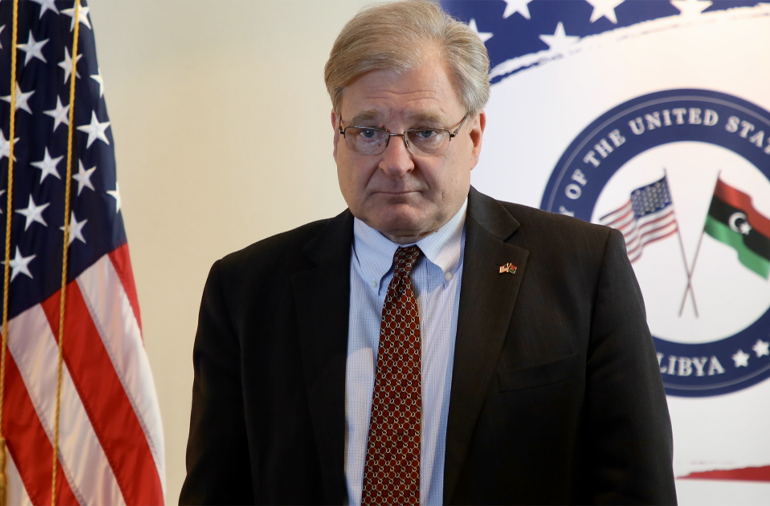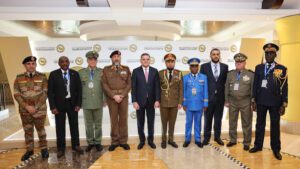The US ambassador and special envoy to Libya, Richard Norland, has said that there’s a risk that efforts to create a new government in Libya would be a distraction from the process of putting elections in place and could create a dynamic of parallel governments such as what Libya had a year ago; “and nobody wants that.”
Speaking to CNN’s Connect the World with Peaky Anderson on Friday, Norland added that over the past decade, Libya has become something of a playground for international powers to exercise their interests and to pursue their interests, saying that Russia, of course, has interests in Libya.
“What puzzles us is the role that the Wagner mercenary group has played. It’s a rather destabilizing role, a divisive role and it brings into question Libya sovereignty, which is in charge of Libya. Is it the Libyans themselves? I think the prevailing sentiment in the country is that all foreign mercenaries’ foreign forces and foreign fighters need to leave.” Norland said.
He added that there’s been some progress made in recent weeks with the departure of some Sudanese mercenaries and the US hopes to see more of that we are certainly going to support UN efforts to help bring that about.
Norland indicated that despite all of the ongoing uncertainty, the good news is that the ceasefire that was signed a little more than a year ago is still holding Libya is at peace.
“The challenge Libyans face now is trying to get elections back on track that were scheduled for December 24th and were postponed for a variety of reasons. There is an effort led by the United Nations mission, Stephanie Williams, to hold to put things in place for those elections to be able to take place, ideally, within the timeframe set by the political dialogue, the U.N. lead last year, that timeframe would end at the end of June.” Norland stated.
He reaffirmed that there are almost three million people – half of the population – who registered to vote and want to vote, but were disappointed that the vote was postponed; thus, any Libyan leaders who are seen as stalling in this process, they must recognize that they’re going to have to account to the people for delaying that process.
Regarding holding elections and if this will ever take place as a free and fair process, Norland reiterated that there’s a realistic process of prospect of elections taking place by the end of June if leaders make the necessary compromises.
The UN is leading intensive discussions to get to elections and there’s that pressure of almost three million Libyans who feel that elections are the key to what their country needs to move forward now, to get the economy going, and to control the borders so that Libya is not a gateway for terrorists or for migrants.
“And there is a realistic process of prospect of this happening in June. The challenge is to make sure that you don’t set a date that passes again and then loses credibility, but not wait so long that Libyans lose faith in the process altogether.” Norland remarked.
Answering a question about if the US supports the Interim Prime Minister Abdul-Hamid Dbeibah at present, Norland indicated that the US embassy has worked carefully and closely with Prime Minister Dbeibah, as his mission as Interim Prime Minister is supposed to set the stage for elections.
“Our view is that the focus now needs to be on getting that electoral process in place as soon as possible. And regarding the term controversial candidates, there’s more than one. One could say that it was controversial candidates that in a way, was the main reason for the postponement of the elections. Ultimately, only Libyans can decide this up. Should the president of Libya be somebody who’s been indicted by the International Criminal Court? (Referring to Saif Al-Islam Gaddafi) Should the president of Libya be somebody who was conducting a military offensive on the capital a year and a half ago? (Referring to Khalifa Haftar) Should the president be somebody who made a pledge that he would not run? (Referring to PM Dbeibah) These are decisions only Libyans can make.” Norland indicated.
ANDERSON: Yes, you speak of course of Saif Gadhafi, of Khalifa Haftar who runs the Libyan National Army. And of course, you speak there of Dbeibah.





